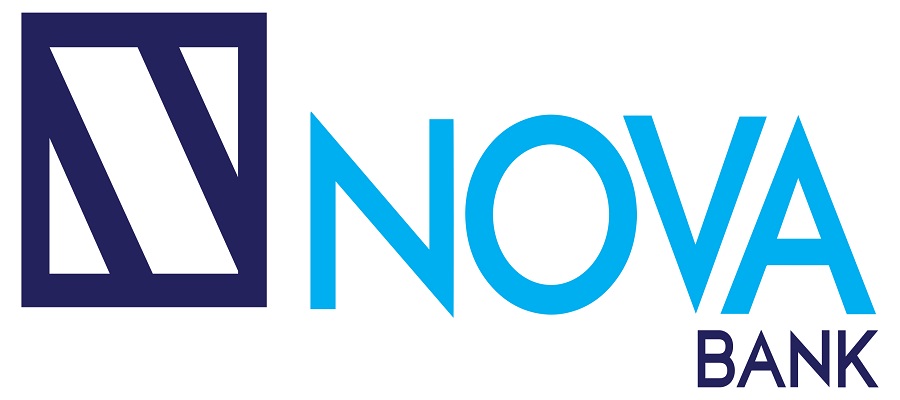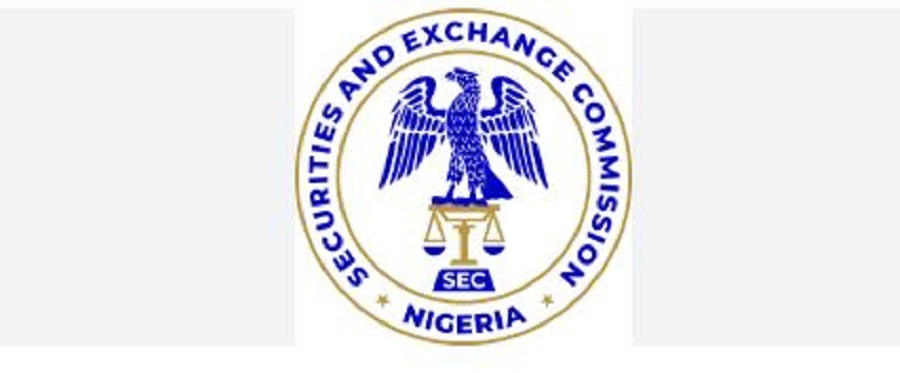E-Financial
Name and Shame: FCMB, MRS Fight over N6.2Bn Debt

Central Bank of Nigeria (CBN)-initiated name and shame campaign of banks’ delinquent debtors gained further momentum on Wednesday as First City Monument Bank Limited and Ecobank Nigeria published their lists, according to the Punch.
MRS Oil & Gas, a major player in the downstream sector of the oil and gas industry, topped FCMB’s list of delinquent debtors with N6.2bn non-performing loan
Punch also reported that the lists have the names of popular companies, whose directors prominent Nigerians are appearing among the high non-performing loan defaulters.
. The list has 86 names with a combined bad debt of N17.11bn.
White Diamond Property Development Limited, a firm owned by a business mogul, Rabiu Isiyaku Rabiu, is the second on the list with a debt of N616m.
Two companies belonging to an ex-Minister of Sports, Saidu Samaila Sambawa, occupied the fourth and sixth numbers on the FCMB list.
The firms, Sigma Engineering & Construction Limited and Sambawa Farms have a combined delinquent facility of N1.04bn.
Niger Global Engineering & Technology Company Limited, a firm belonging to Senator Hope Uzodinma, a former Chairman of the Senate Committee on Aviation, was number eight on the FCMB debtors’ list, with N338.85m
The name of the same company appears on the Ecobank Nigeria’s delinquent debtors’ list, with a bad loan of N94.3m recorded against it.
Global Energy Resources, which according to FCMB, belongs to Mr. Olatunde Ayeni, who is the Chairman of Skye Bank Plc, owes N175m.
Suzzatej Nigeria Limited, whose directors are listed as Prince Olanrewaju Adeyemi Tejuosho, Princess Mojisola Tejuosho, children of the Osile Oke Ona, Egba, Oba Adedapo Tejuosho, and two others, is said to owe the bank N84m
In total, the 86 names on the list owe FCMB a combined sum of N17.1bn.
Ecobank Nigeria, which has 73 names on its list, is being owed a total sum of N5.4bn by the delinquent debtors.
This means that the debtors are owing FCMB and Ecobank a total sum of N22.5bn.
Plasto Crown Nigeria Limited, a firm belonging to a former Minister of Environment and Housing, Lady Helen Esuene, and other people, is said to owe Ecobank N11.1m.
Banks, which are expected to publish the lists of their delinquent debtors later this week or before the end of the month are Standard Chartered Bank, Keystone Bank, Citibank, Wema Bank Plc and United Bank for Africa Plc.
The banks, which had published the lists of their delinquent debtors on Monday were Zenith Bank Plc, Guaranty Trust Bank Plc, Union Bank Plc, Sterling Bank Plc, Skye Bank Plc, Fidelity Bank Plc, Stanbic IBTC Bank, Heritage Bank Limited, Enterprise Bank Limited, First Bank of Nigeria Limited, Access Bank Plc, Diamond Bank Plc and Unity Bank Plc.
The Central Bank of Nigeria had on April 22, 2015 directed the banks, discount houses and the Asset Management Corporation of Nigeria to publish the list of their delinquent debtors from August 1.
They are to publish the names in at least three national newspapers on a quarterly basis.
In line with the directive, the banks gave the chronic debtors a three-month grace period, which expired on July 31.
E-Financial
NOVA Bank Opens Regional Office in Owerri

NOVA Bank has opened its regional office in Owerri, Imo State, as part of its expansion drive across the South-East and South-South regions.

At the inauguration ceremony, recently, Senator Hope Uzodinma, Imo State Governor, announced that the state government would provide land for the development of the bank’s permanent regional headquarters for the South-East and South-South in Owerri.
The event was attended by government officials, business leaders from the two regions, and members of the Nigerian diaspora.
Governor Uzodinma stated that the bank’s entry into Imo State aligned with the government’s efforts to promote economic growth through infrastructure development, improved road networks, and market-driven initiatives.
He described NOVA Bank as an early investor in the region’s emerging economic opportunities.
He also commended the bank’s approach of combining physical banking infrastructure with digital platforms, noting that it aligns with the state’s emphasis on technology-driven governance and commerce.
“In recognition of NOVA Bank’s vision and long-term commitment to the region, the Imo State Government will allocate a suitable parcel of land in a prime location for the development of its permanent South-East/South-South Regional Headquarters,” the governor said.
Speaking at the event, Phillips Oduoza, chairman, NOVA Bank, thanked the Imo State Government and residents for their support, describing the Owerri office as a key part of the bank’s national expansion strategy.
“The opening of our regional office in Owerri marks a strategic milestone in NOVA Bank’s growth and underscores our commitment to the South-East and South-South,” Oduoza said, adding that the city would serve as a hub for the bank’s operations in the region.
He said the bank’s expansion is driven by a focus on sustainable growth, innovation and strong financial fundamentals, noting that NOVA Bank is investing in digital infrastructure and financial solutions to support small and medium-sized enterprises, corporates, public-sector institutions, high-net-worth individuals and the mass market.
According to him, the planned regional headquarters is expected to support job creation, improve access to credit, promote enterprise growth and deepen financial inclusion across the two regions.
Oduoza said the bank remains focused on building a resilient institution that delivers value to customers, partners and shareholders.
The opening of the Owerri regional office marks NOVA Bank’s latest step in expanding its presence in southern Nigeria.
E-Financial
SEC Says CMOs Must Renew Registration in January

Securities and Exchange Commission (SEC) has announced that Capital Market Operators (CMO’s) are to renew their registration from January 1 to 31, 2026.

In a bid to make the process seamless, the Commission says it will commence electronic receipt and processing of applications for registration and updates of registration information in the first quarter of 2026.
Dr. Emomotimi Agama, director general of the SEC, stated this during an interview in Abuja.
According to Agama, “These initiatives reflect our commitment to leveraging technology for faster, more transparent, and efficient regulatory processes. The Commission is taking deliberate steps to make regulatory processes faster, more transparent, and technology-driven. We are investing in automation, databased supervision, and secure infrastructure to improve how we interact with the market.
The SEC Boss stated that through its Digital Transformation Portal, the Commission has automated registration and licensing end-to-end as operators can now submit applications, upload documents, and track approvals online, cutting down manual processing time and reducing the need for physical visits.
Commercial Paper Issuance Module
He said the Commission has also rolled out the Commercial Paper issuance module, which allows operators to file documents, monitor progress, and receive approvals electronically while feedback from early users shows a clear improvement in turnaround time.
“Work is ongoing to automate quarterly and annual returns submissions, with structured templates and system checks to ensure accuracy. A returns analytics dashboard is also in development to support risk based supervision and exception reporting.
“To back these changes, we have started upgrading our IT infrastructure, servers, storage, networks, and security layers, to boost speed and reliability. Selective cloud migration is underway for platforms that need scalability and external access, while core internal systems remain on premisev5p for now as we assess security and cost implications.
“At the same time, we are strengthening data integrity and cybersecurity with vulnerability assessments and planned penetration testing once automation and migration phases are stable. These efforts show our commitment to building a modern, resilient regulatory environment that supports efficiency, investor confidence, and market stability.
Agama affirmed that the Nigerian Capital Market is clearly on a path toward digital transformation, therefore, there is an urgent need for regulatory clarity on advanced technologies, targeted support for smaller firms, and capacity-building initiatives.
He said, “A phased and proportionate approach to regulating emerging technologies such as AI is essential, complemented by internal readiness through supervisory technology tools. Furthermore, investor education, particularly among younger demographics, will be critical to future-proof participation and drive fintech adoption.
“Innovation is vital, but it must be accompanied by responsibility. As operators embrace automation, artificial intelligence, and data-driven tools, they bear a duty to ensure ethical, secure, and compliant deployment. Safeguarding investor data, preventing market abuse, and maintaining operational resilience are non-negotiable.”
The SEC DG said that ultimately, responsible technology adoption is about building trust, the cornerstone of our markets saying that trust thrives on fairness, transparency, accountability, and regulatory compliance.
He therefore urged operators to uphold these principles adding that it would not only protect investors and systemic stability but also strengthen the long-term credibility and competitiveness of the Nigerian Capital Market.
E-Financial
Naira Stability, Lower Borrowing Costs Expected in 2026 — CBN Survey

The naira is projected to remain largely stable in the coming months, while borrowing costs are expected to ease as inflation moderates, according to the Central Bank of Nigeria’s (CBN) latest Business Expectations Survey (BES).

CBN
The survey, which polled about 1,900 businesses nationwide, revealed that confidence in the local currency has strengthened. Respondents expect the naira to rise from an index of 28.8 points to 42.2 points by May 2026, extending the rare period of stability recorded throughout 2025.
Borrowing rates are also forecast to decline, with the index dropping from 15.4 points to 11.7 points, reflecting expectations of softer monetary conditions as inflationary pressures ease.
“Respondents expect the naira–US dollar exchange rate to steadily appreciate across the review periods, as indicated by the positive indices. They also anticipate a continuous positive outlook for borrowing rates during the same periods,” the BES report stated.
The naira has enjoyed an unusually long stretch of stability after losing about 41% of its value in 2024 following the unification of exchange rates. Analysts attribute the current calm to the CBN’s calibrated interventions and steady inflows from foreign portfolio investors.
Inflation, which stood at 14.45% in November 2025, is projected to fall to single-digit levels in 2026. This outlook could give monetary authorities room to begin a gradual easing cycle, potentially improving credit access for businesses.
Despite the improving macroeconomic environment, businesses continue to grapple with structural constraints. The survey highlighted insecurity (70.1 points), high/multiple taxation (69.7 points), and insufficient power supply (69.3 points) as the most pressing challenges. Other concerns include poor infrastructure and an unfavorable political climate, both scoring 57.7 points.
While optimism surrounds the naira and borrowing costs, the BES underscores the need for sustained reforms to tackle deep-rooted operational challenges. Analysts say that without addressing insecurity, taxation burdens, and infrastructure gaps, Nigeria’s businesses may struggle to fully benefit from the improving macroeconomic outlook.

 News2 days ago
News2 days agoUS Okays $2.1Bn for Christian Healthcare in Nigeria

 General News2 days ago
General News2 days agoThe Mood Market to Light Up Lagos with a Rooftop Gifting, Food & Lifestyle Fair this Christmas

 Broadcasting2 days ago
Broadcasting2 days agoTim Akano Recounts 20-Year Growth, Media Support at NITRA End-of-Year Meet

 News2 days ago
News2 days agoSERAP Asks Tinubu to Release CTC of Tax Bill

 E-Financial2 days ago
E-Financial2 days agoSterling Bank, Water.org, Sterling One Foundation Partner on WASH Loan for Millions

 General News2 days ago
General News2 days agoLeo Stan Ekeh: A “Rare Avis”, an Unconquerable Entrepreneur

 General News2 days ago
General News2 days agoFCCPC Forces Ikeja Electric Into Compliance, Unseals Headquarters After Rights Breach

 General News2 days ago
General News2 days agoNITDA Wins Triple SERVICOM Honours for Citizen-Centred Service Delivery














